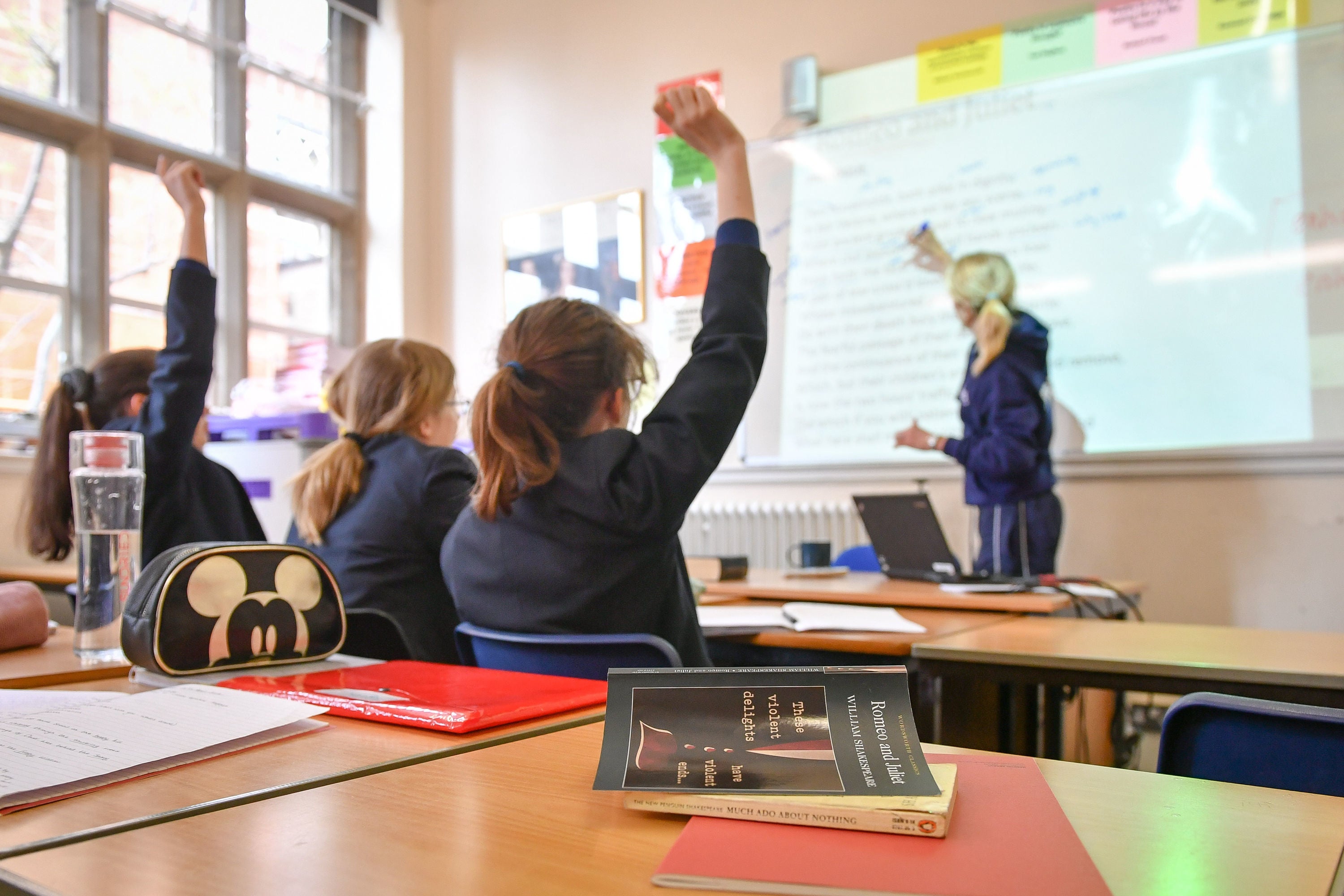Calls for £1bn to save ‘buckling’ mental health services as suicidal children are turned away
‘Government response to this children’s mental health crisis has so far been too slow and inadequate’ says Anne Longfield

Your support helps us to tell the story
From reproductive rights to climate change to Big Tech, The Independent is on the ground when the story is developing. Whether it's investigating the financials of Elon Musk's pro-Trump PAC or producing our latest documentary, 'The A Word', which shines a light on the American women fighting for reproductive rights, we know how important it is to parse out the facts from the messaging.
At such a critical moment in US history, we need reporters on the ground. Your donation allows us to keep sending journalists to speak to both sides of the story.
The Independent is trusted by Americans across the entire political spectrum. And unlike many other quality news outlets, we choose not to lock Americans out of our reporting and analysis with paywalls. We believe quality journalism should be available to everyone, paid for by those who can afford it.
Your support makes all the difference.Suicidal children are being turned away and the most vulnerable put at risk as mental health services “buckle” under demand, a new report has warned.
A review led by former children’s commission Anne Longfield has called for the UK’s prospective prime ministers to commit to £1 billion in funding for children and young people’s mental health services.
The report, part of the Commission on Young Lives has warned gaps in mental health support are leaving the most vulnerable children at further risk of abuse and exploitation.
It also warns services are failing to reach children from marginalised groups, such as young black teenagers who are disproportionately failed.
The Commission’s report, jointly authored by think tank the Centre for Mental Health, highlights evidence of children being turned away from community mental health services despite suicide attempts.
It said: “We heard about one teenage boy who was discharged from hospital after trying to take his own life, but after ten days nobody from mental health services had been in touch. A young woman admitted to A&E by ambulance following a suicide attempt but was discharged 12 hours later.
Her family contacted mental health services every day for over a week but did not receive any follow up appointment or phone call. When the family was finally contacted two weeks later, there was no explanation or empathy.”
Earlier this month charity Young Minds revealed thousands of children had reported attempts to take their own lives while waiting for treatment from mental health services.
According to the report the most common reason for services rejecting referrals was due to conditions not being “suitable of treatment” or did not meet eligibility criteria.
It comes as demand for children’s mental health services has soared with year with 400,000 children receiving care each month in 2022. This is up by 147,835 in February 2020 and up by more than 80,000 in the last year.
However, services are struggling to keep up with demand as performance figures for children’s community eating disorder teams have shown a xxx decline in patients being seen within a week for an emergency referral.
The report warns a staffing shortages were said to be one of the most common reasons for delayed access to children and young people’s mental health services.
The Commission on Young Lives has called for the incoming prime minister to create a £1 billion fund for a children and young people’s mental health well being recovery programme.
It has also called for “guaranteed” mental health assessments for children and young people entering care, those at risk of exclusion from school, who go missing and when children are arrested or involved in crime.
The government, it said should commit to funding mental health support teams in schools beyond 2023-24 and aim for all schools to have this by 2030.
It has also called for the NHS to be measured on the improvement of mental health and well being services for children and risk of harm and those involved with the criminal justice system.
Anne Longfield, Chair of the Commission on Young Lives, said: “The children’s mental health emergency in England is so profound that we face a generational threat to our country’s future national prosperity and success. The scale of the problem is growing, rocket-boosted by the pandemic and the system is buckling under pressure and unable to cope with the explosion in demand for help.
“Thousands of vulnerable children are falling through gaps in the mental health support system, boosting the chances of those resourceful, manipulative, and ruthless criminals and abusers who are so good at grooming them.
“The overall response from the Government to this children’s mental health crisis has so far been too slow and inadequate, and we are failing to support hundreds of thousands of children with mental health problems. It is shocking to hear that some young people who attempt suicide still do not receive an immediate referral for help and are discharged without any extra support.”
Centre for Mental Health chief executive Dr Sarah Hughes said: “Children and young people’s mental health is at risk from the after-effects of the pandemic, the cost of living crisis and the ongoing effects of endemic racism and inequality. We need action now to protect the mental health of those at greatest risk, including the poorest and the most marginalised children in society.
“Expanding mental health support for children and young people is essential. But alongside it we need to reduce child poverty, support young families, make schools mentally healthier and rebuild youth services.”
Join our commenting forum
Join thought-provoking conversations, follow other Independent readers and see their replies
Comments